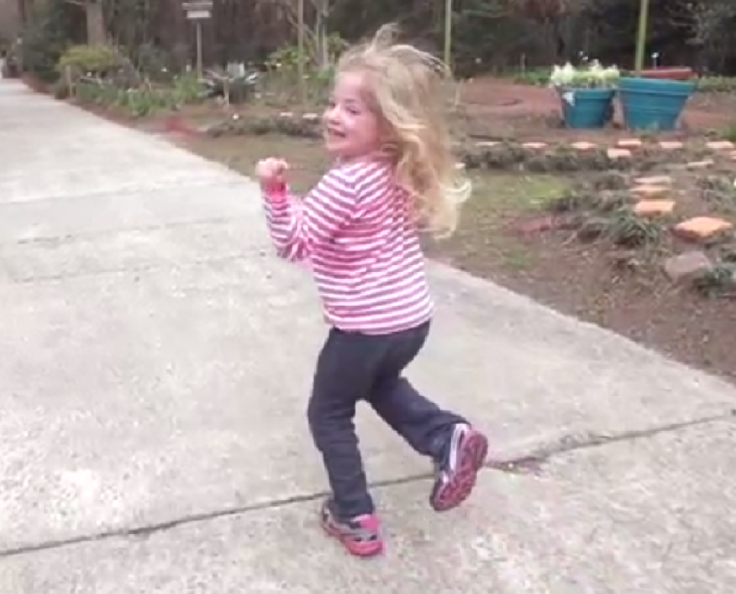South Carolina Family Self-Quarantines To Keep Daughter With Molecular Disorder Safe

Many people at risk for Ebola are sick of spending 21 days inside, cut off from the world. But imagine spending over 100 days in quarantine. A little over excessive, you may think, but one South Carolina couple isn't taking any chances and is keeping their family behind closed doors for the safety and health of their daughter.
Glenn and Cara O'Neill have undergone a self-quarantine after their 4-year-old daughter Eliza was diagnosed last July with Sanfilippo syndrome, a rare disease that causes impairments in cognitive abilities and eventually leads to death. The quarantine has now reached over 160 days.
"There’s no cure or treatment,” Glenn told Medical Daily. “They basically said you gotta go and see what’s around the world and the country. ... You just go home and try and figure something out.”
Sanfilippo syndrome occurs when the cells of the body lack an enzyme or carry a deficient one that is needed to break down the heparan sulfate sugar chain. The substance remains stored in the body and clogs up the cells, leading to neurological damage that causes a drop in IQ levels and behavioral problems, including trouble speaking. The disease occurs in one out of every 70,000 births, according to the National Institutes of Health, with a carrier rate of one out of 133 people. Eliza has type A, the most severe form of the disease. People with this form are not likely to live past their early teen years.
"When families are navigating a medical or mental illness, they are faced with making difficult decisions,” Dr. Kenneth Phelps, an assistant medical professor at the University of South Carolina, told the O’Neills. “The self-doubt and fear around these decisions is unbearable at times, but they must be made. What provides reassurance to these families is the knowledge that people, especially children, are resilient.”
The O’Neills first underwent quarantine in May, pulling both Eliza and her brother, Beckham, 7, out of school after Eliza kept complaining of ear infections and was having troubling breathing at night. They have since noticed an improvement.
“She hasn’t been sick yet,” Glenn said. “She hasn’t been sick with any type of virus.”
The couple after consulting with other parents of children with the disease made the decision to continue the quarantine and now use Skype to communicate with relatives, school, and Eliza’s speech therapist. Cara, a former pediatrician for special needs children, now stays home to look after the kids while Glenn works from home as a contract consultant for Symantec.
The family has also made other adjustments, including having groceries delivered to their door, wearing gloves and masks when interacting with people, and coming up with inventive alternatives for activities and holidays, such as trick-or-treating on Halloween. It also threw out its television and limited the amount of computer time Eliza has, saying that TV and Internet make it more difficult for her to speak and that she can very easily become addicted.
“Her speech was worse,” Glenn said. “She wasn’t reading her books. … She would just sit there.”
The quarantine, though, is not like that for Ebola patients as the family does play outside in their back and front yard. It also takes trips at least once a week to areas where there are no people so that Eliza is not at risk of becoming sick, choosing a secluded beach or an open field.
“What's important in the next few months is spending time with our daughter and keeping her at the top of her game,” Glenn said.
The two have also started a fundraising campaign in Eliza’s name to raise money for a gene therapy clinical trial that may take place in early 2015 at Nationwide Children’s Hospital in Columbus, Ohio. The trial still has to be approved by the Food and Drug Administration, and there is no guarantee that Eliza will meet the criteria and be selected.
“The goal is let’s try and keep her as sharp as she is, as high up she is until clinical trials come along so we have a kid at the top of her game,” Glenn said.
The fundraising campaign ends Nov. 16, Eliza’s birthday. Glenn and Cara plan over the next few weeks to send out flyers and letters asking for more donations before then and will try to raise $600,000 more that day. Cara says that even if the trial is not successful, they are not giving up. “We continue to look towards other research," she said.
The campaign currently has over $1.2 million raised, with the trial costing over $2.5 million, according to Glenn.



























